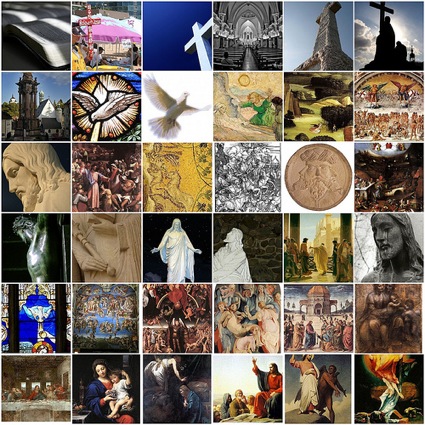In further exploring what I’ve talked about yesterday, I’ve been reading the rest of David Fitch’s posts on the subject. I want to condense some of the more pertinent ideas down here.
I believe a host of problems in American evangelicalism originate in our disregard for community. Indeed, our hyped up attraction approach to church has put the individual first in such a way that community becomes an afterthought which creates problems for discipleship, catechesis of our children, as well as evangelism. We seek to draw the individual in, sell him/her a message, and then provide communities. Community by definition becomes commodified. Instead of an individual being grafted into the Body of Christ as the very foundation of his/her salvation, this individual becomes a consumer of what kind of community best suits the kind of Christianity he or she can fit into her life. The ramifications for discipleship are disastrous.
I would agree with this. Our “evangelism proper” is highly individualized. What’s important in being a Christian looks something like this:
Confess Jesus Christ as your personal savior
…
…
…
…
sinning less…
…
…
…
…
…
…
…
…
…
…
…
Community
…
I think the word he used, “afterthought” is a good way to describe it.
Roman’s Road is solid stuff. It’s not scholarly, but it’s still almost completely rational. The rhetoric masters take something akin to this approach: Convince someone that God exists and repentance and discipleship will follow naturally as they are enlightened of the error and ignorance of their ways. But really changed lives are always way more complicated than that, and the thing that complicates them (good and bad) is tied up in community.
Michael Spencer comments:
Apologetics deals with reasons, evidence, objections, etc. But I have almost never seen apologetics alone have any sort of evangelistic impact. Our problem, at root, is not intellectual or evidential, but moral.
OK. Pop quiz. Moral change is facilitated/nurtured most by:
A) The Holy Spirit
B) Reading your Bible more
C) Attending worship services
D) Moral company (Godly parents, friends, peers, and leaders)
Well (A) is a given. The Holy Spirit produces real change. (Perhaps ALL change depending on your theology.)
What about (B)? “I have hidden your word in my heart, that I might not sin against you” – Psalm 119:11. OK. You can’t discount that one.
(C)? Singing worship songs. Listening to a preacher. Real moral change? Really? Perhaps. Maybe when it’s like (B). Or maybe when it’s like (D). How often is it really like either of these? (millage may vary)
And finally (D). “Do not be deceived: Bad company corrupts good morals” – 1 Corinthians 15:33. And the opposite? Living in a community of Godly men and women nurtures real change.
Fitch really lays it down in this post about how real community is NEVER easy to break in to. Sorry.
…any community of any significant depth will present barriers to entry for the new person. The community will already know each other deeply, the visitor will not. The community will have shared a journey, struggles, pains, sorrows and joys. We will already understand deeply our purpose, our Mission as worked out for our context because we have spent months, maybe years, praying and listening to God.
We should always be hospitable in inviting others into this great life we have been called to share. But frankly, it cannot be communicated or extended through the exchange of simple pleasantries after church gathering on Sunday morning. Unfortunately, there will always be these communal hurdles to becoming part of such a community of Mission.
It takes long-term commitment. I think that the Walmart-like greeters who wear a smile and have a system to greet you going into the large church are a sign of the loss of this community. It is false, a simulacrum, and it eventually breeds cynicism.
So what do you do? If attractional evangelism is by it’s very nature shallow and low milage, but deep community is naturally a walled garden, how do we bring in new believers? How do we find this community if we move into a new community (geographically or otherwise)? Is the burden put on us to work hard to find it and break into it or even create it from scratch? Where is the Holy Spirit in all of this.
The answers you give to these questions have huge implications in church sociology, missions, and even family relations. A large portion of what I’m trying hardest to grasp and wrestle with falls under these headings.

